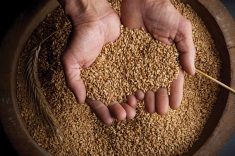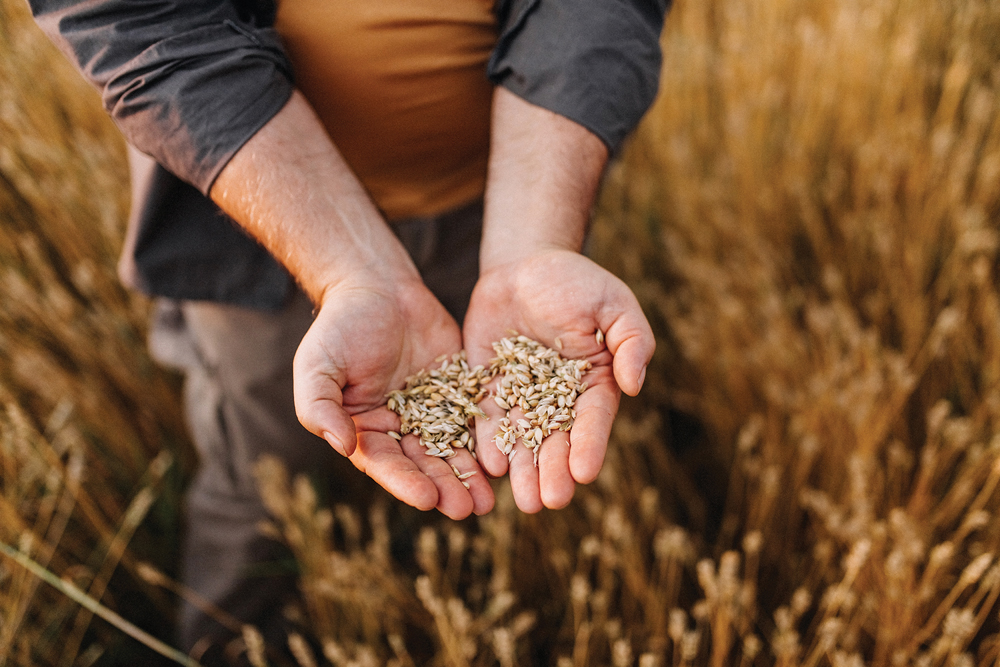The cost to certify seed in Canada is going up. And despite a vote overwhelmingly in favour of it, some stakeholders are unhappy at the news.
Canadian Seed Grower’s Association (CSGA) members voted 111 to 16 to increase fees to certify Canadian seed crops starting in 2022 during a special general meeting online Nov. 24.
Canola, corn, soybeans and hemp will see the biggest increases at 63, 50 and 23 per cent over this year’s fees, respectively.
Read Also

Spoken questions are what make it an interview
Recently, I was exchanging emails with the media email account at a government agency, hoping to reach a source for…
While CSGA members — mainly farmers, who also produce seed — overwhelmingly endorsed their board’s proposal for higher fees to reflect the cost of delivering certification services mandated by federal legislation, some of the large seed companies producing much of Canada’s canola, corn and soybean crops, questioned it.
“We at BASF believe these fees to be both irregular and inequitable,” Andrew Wall, BASF’s manager of certified seed production told the meeting. “A 60 per cent increase in fees (to certify canola seed crops) does not seem to be justified.”
Arguably there’s more in play than fees as the 115-year-old CSGA and newly created Seeds Canada, which represents seed development and production companies, vie for hegemony as the federal government pursues its Seed Regulatory Modernization (SRM) review.
Earlier this year CSGA members rejected merging with four other seed organizations, including the Canadian Seed Trade Association, to form Seeds Canada.
During five years of merger talks the agreed goal was to create a more integrated and efficient seed sector. Now instead of a ‘one stop shop’ Seeds Canada wants to explore removing CSGA’s “monopoly” and perhaps let others certify seed, Lorne Hadley, Seeds Canada’s director of policy, said in an interview Oct. 7.
Certifying seed crops is part of Canada’s quality control system ensuring farmers get pedigreed seed that meets specific standards for purity and germination.

CSGA has the regulatory authority for seed crop certification and varietal purity standards for all crop kinds except potatoes.
It’s also responsible for certifying breeder and select seed.
Seeds Canada carries on the former Canadian Seed Institute’s role in auditing seed establishments that process and store pedigreed seed.
Seeds Canada also represents authorized seed laboratories, as well as a number of seed growers and seed retailers.
Why it matters: Disagreements between the Canadian Seed Grower’s Association and Seeds Canada over higher fees for seed crop certification, is more evidence of a seed industry schism at a time when the federal government is seeking consensus.
Seeds Canada wrote CSGA Oct. 26 asking it to explain its proposed fee increases warning it would “… negatively impact the competitiveness and demand for certified seed in many key crops in Canada including canola, corn, and soybeans.”
Seeds Canada made the letter public Nov. 4. But when Seeds Canada was asked to comment on the outcome of CSGA’s vote Seeds Canada wrote: “This is CSGA’s meeting and matter, so we will leave the initial reactions to them.”
However, on Nov. 24, the day after CSGA’s meeting, Seeds Canada issued a press release calling for a summit of seed stakeholders. (If you have any questions, or would want to participate contact Seeds Canada’s executive director Barry Senft at [email protected].)
“The review, led by CFIA (Canadian Food Inspection Agency), is much appreciated and very much needed,” Seeds Canada president Ellen Sparry said in the release. “We do, however, believe that an overall vision for the sector’s future and the producers’ needs and realities must be more clearly understood to ensure we are putting the right tools in place. What would best enable our customers and in turn, our businesses? What system would best deliver seed innovation and support advancement today and beyond? A full regulatory review is unlikely to occur again for quite some time, so we need to get this right.”
Given that’s the purpose of the Seed Regulatory Modernization process already well underway, it raises questions about Seeds Canada’s proposal.
While there’s some common ground on the need for more flexibility, efficiency, transparency and digitization in the seed system, there are differing views on how to achieve it, and on the role of government regulation through CFIA, which administers the Seeds Act, and where CSGA and Seeds Canada fit in.
Even though the federal government is open to making big changes it will be informed by the seed industry and farmers first, Wendy Jahn, national manager of CFIA’s Seeds Section said in an interview Oct. 5.
“There’s no guarantee that it will happen, but right now we have a once-in-a-generation opportunity to step back and take a holistic look at the regulations and the regulatory framework — so even beyond the regs — to ensure that they meet today’s needs,” she said.
“We have signalled that we are open to substantive change, but under the context of hearing from our stakeholder communities and having a balanced process.
“We want… what we (CFIA) are doing to bring value to Canada. But to make decisions you need to hear from the producer community that’s impacted by this because they are the consumers of seeds. We know that the quality of seed and the availability of seed has a huge impact on the grain industry and downstream so we want them at the table too. We want to find out what they’re thinking.”
With everyone in the same room CFIA hopes to find consensus.

While the cost of certifying hybrid canola and hybrid corn will rise by 63 and 50 per cent compared to this year, it shouldn’t have much impact on the price farmers pay for seed, says Mike Scheffel, CSGA’s managing director, policy and standards.
“They sell hybrid corn seed for over $300 a bag and we’re talking about an increase that works out to about three cents a bag,” he said in an interview after the meeting.
“That seed that comes off an acre of canola probably retails for about $20,000 and we’re charging $3.25 (an acre to certify it). That will probably increase the price of a bag of canola seed 10 cents.”
Scheffel was quick to add canola seed producers face high costs, including expensive irrigated land, pollination and seed treatments.
During the meeting CSGA executive director Doug Miller said CSGA needs to raise what it charges to certify seed crops to remain viable. The fees, in place this and last year, are temporary ending Jan. 21, 2022. Without new fees, much lower 2016 fees would come back into effect.
When the temporary fees of $2 an acre for canola and corn, $1.30 an acre for hemp and soybeans and $1.10 for all other crops were proposed, CSGA expected to be part of Seeds Canada and new fees or new ways of raising revenue were contemplated, Scheffel said.
Although the $3.25-an-acre fee for certifying canola seed crops in 2022 is up 63 per cent from 2021, it’s a 225 per cent increase from 2016. (In 2016 the certification fee for canola and corn was $2 an acre and 98 cents for all other crops.)

In comparison the fee for forages and legumes will increase 19 per cent in 2022 compared to 2016 (seven per cent more than 2021), while other crops, including wheat, will go up 12 per cent versus 2016 and unchanged from 2021.
That prompted Giselle Ulrich, BASF’s quality manager for canola seed supply, to suggest canola was paying more than its fair share.
“I think what we’re trying to say here — and maybe I’ll say it a little bit more clearly — is that obviously for the last two years you guys have got a deal (on canola)… because the costs it takes for us to be able to deliver this program is based on the fee schedule that you see in front of you now,” Miller said in reply.
The CSGA determined it costs a lot more to certify hybrid canola, hybrid corn, soybeans and hemp due to their complexity.
CSGA is a not-for-profit association so costs to members is top of mind, Miller said. The association is cutting costs, and streamlining through digitization, which is also speeding up the certification process, he said. But digitization has added costs. CSGA also used some of its reserves to fund Seed Synergy — the process leading to formation of Seeds Canada. As a result, CSGA’s reserves are about $160,000 below what’s required by its bylaws, Miller said.
Under the new fees CSGA revenues are projected to be $217,581 higher than they were in 2020 at just over $3 million, he said.
“CSGA administers one of, if not the largest, crop certification systems globally,” Miller said. “We certify over 1,600 seed crops every year of over 2,200 different varieties with only 12 full-time employees. We need to ensure we have a fee schedule in place that allows us to fulfil our regulatory mandate and administer Canada’s national seed crop certification program.”
















